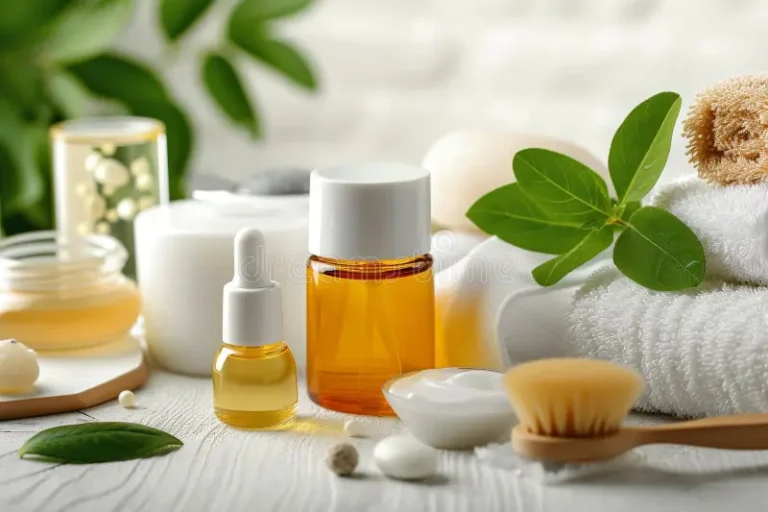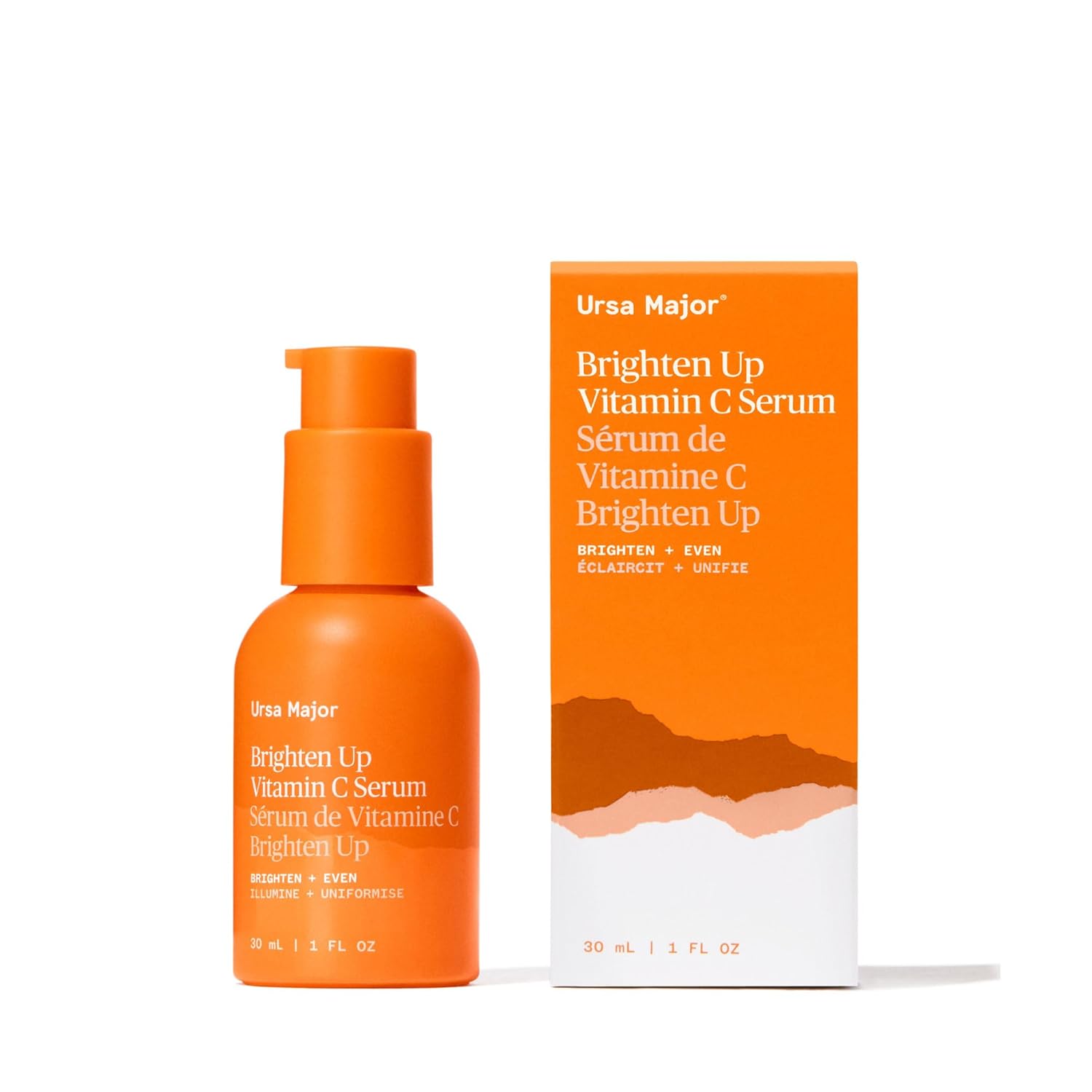Anti Inflammatory Skin Care is the key to calming redness, irritation, and sensitive skin. If your skin often feels reactive or uncomfortable, this guide will show you simple steps to build a soothing routine that restores balance and brings peace to your complexion.
What is Inflammation and Why Does it Matter for Your Skin?
Inflammation is your body’s natural way of protecting itself from harm, like an injury or an infection. When your skin is inflamed, it might look red, feel warm, swell, or become itchy and uncomfortable. Think of it like a little alarm system going off.
:max_bytes(150000):strip_icc()/best-ingredients-skin-inflammation-2000-1f9636d02d3a4155abfead7ca7c192e0.jpg)
For our skin, this alarm can be triggered by many things. It could be something you ate, environmental factors like pollution, or even the products you use. When inflammation happens often or lasts for a long time, it can lead to skin concerns like acne, eczema, rosacea, and premature aging. So, keeping inflammation in check is super important for healthy, happy skin.
The Power of Anti-Inflammatory Skincare
Anti-inflammatory skincare is all about choosing ingredients and habits that help calm down that alarm system in your skin. It’s like gently telling your skin, “It’s okay, you can relax now.” This approach focuses on soothing irritation, reducing redness, and strengthening your skin’s natural barrier.
Instead of harsh treatments that can sometimes make things worse, anti-inflammatory skincare takes a more gentle, supportive route. It’s about nurturing your skin and helping it heal from the inside out.
Key Principles of an Anti-Inflammatory Routine
Building an anti-inflammatory skincare routine doesn’t have to be complicated. It’s really about being mindful of what you put on your skin and how you treat it. Here are the core ideas:
- Gentle Cleansing: Avoid harsh soaps that strip your skin.
- Soothing Ingredients: Look for ingredients known to calm redness.
- Hydration: Keep your skin well-hydrated to support its barrier.
- Protection: Shield your skin from triggers like the sun.
- Consistency: Stick to a simple routine.
Essential Anti-Inflammatory Ingredients to Look For
The magic really happens with the ingredients you choose. Certain natural and scientifically proven ingredients are superstars at calming inflammation. Here are some of the best:
Top Anti-Inflammatory Ingredients
Here’s a quick look at some powerful allies for your skin:
| Ingredient | What it Does for Your Skin | Why it Helps with Inflammation |
|---|---|---|
| Centella Asiatica (Cica) | Soothes, repairs, and hydrates. Helps reduce redness and irritation. | Contains compounds like madecassoside that have potent anti-inflammatory and antioxidant effects. |
| Green Tea Extract | Calms redness, soothes, and protects against environmental damage. | Rich in polyphenols, particularly EGCG, which are powerful antioxidants and anti-inflammatories. |
| Chamomile | Gently calms and soothes irritated skin. | Contains compounds like bisabolol and chamazulene, known for their anti-inflammatory and skin-healing properties. |
| Licorice Root Extract | Helps to brighten, soothe, and reduce redness. | Contains glabridin and licochalcone A, which have anti-inflammatory and antioxidant benefits. |
| Niacinamide (Vitamin B3) | Strengthens the skin barrier, reduces redness, and improves skin texture. | Helps to calm inflammation and improve the skin’s resilience against irritants. |
| Aloe Vera | Cooling, hydrating, and soothing, especially for sunburns or irritation. | Contains compounds that help reduce inflammation and promote skin healing. |
| Oat Extract (Colloidal Oatmeal) | Soothes itchiness and irritation, and moisturizes. | Contains avenanthramides, which are known for their potent anti-inflammatory and anti-itch properties. |
Ingredients to Use with Caution or Avoid
Just as some ingredients help, others can worsen inflammation. Being aware of these is just as important:
- Harsh Sulfates (like SLS/SLES): Can strip the skin’s natural oils, leading to dryness and irritation.
- Alcohol (Denatured Alcohol, SD Alcohol): Often found in toners or astringents, these can be very drying and irritating.
- Fragrances (Synthetic or Natural): A common cause of sensitivity and allergic reactions for many.
- Physical Exfoliants (Harsh Scrubs): Scrubs with large, jagged particles can create micro-tears and increase inflammation.
- Certain Essential Oils: While natural, some essential oils can be potent and irritating if not formulated correctly or if you have sensitive skin.
Your Step-by-Step Anti-Inflammatory Skincare Routine
Let’s put this into practice! Here’s a simple, beginner-friendly routine you can follow morning and night.
Morning Routine: Protect and Prepare
The goal in the morning is to protect your skin from the day’s stresses and prepare it for the elements.
- Gentle Cleansing (Optional):If your skin feels calm and not oily, you might just need to rinse with lukewarm water. If you prefer to cleanse, use a mild, hydrating cleanser. Avoid hot water!Product Tip: Look for cream, lotion, or gel cleansers labeled “gentle,” “hydrating,” or “for sensitive skin.”
- Soothing Serum:Apply a serum with anti-inflammatory ingredients like Centella Asiatica, green tea, or niacinamide. This is a concentrated way to deliver calming benefits.Product Tip: Serums with “Cica,” “calming,” or “anti-redness” in their name are great choices.
- Hydration:Use a lightweight, fragrance-free moisturizer. This helps lock in moisture and supports your skin’s barrier.Product Tip: Look for moisturizers with ceramides, hyaluronic acid, or ingredients like aloe vera.
- Sun Protection:This is non-negotiable! Sun exposure can worsen inflammation and redness. Use a broad-spectrum SPF 30 or higher every single day, even if it’s cloudy.Product Tip: Mineral sunscreens (with zinc oxide and titanium dioxide) are often well-tolerated by sensitive skin.
Evening Routine: Cleanse and Repair
At night, the focus shifts to removing the day’s grime and helping your skin repair itself.
- Double Cleanse (If wearing makeup/sunscreen):Start with an oil-based cleanser or micellar water to gently break down makeup and sunscreen. Follow with your gentle water-based cleanser from the morning.Product Tip: For the first cleanse, cleansing balms or oils are effective. For the second, use your regular gentle cleanser.
- Soothing Treatment:This is a good time for a treatment focused on calming inflammation. You can use your morning serum again, or a dedicated calming treatment.Product Tip: Products with chamomile, oat extract, or licorice root are excellent for overnight soothing.
- Hydration:Use a slightly richer moisturizer for overnight repair. This helps replenish moisture lost during the day.Product Tip: Look for moisturizers with ceramides, fatty acids, or ingredients like shea butter (if it doesn’t clog your pores).
- Targeted Treatment (Optional):If you have specific concerns like acne breakouts, you can apply a gentle spot treatment that isn’t overly drying.Product Tip: Salicylic acid (BHA) in a low concentration can help with breakouts without being too harsh.
Weekly Treatments for Extra Soothing
Beyond your daily routine, a few weekly additions can make a big difference.
- Calming Masks:Once or twice a week, use a mask with ingredients like green tea, aloe vera, or colloidal oatmeal. These provide an intensive dose of soothing goodness.Product Tip: Sheet masks or rinse-off clay masks formulated for sensitive or irritated skin are great options.
- Gentle Exfoliation (Use Sparingly!):If your skin needs a bit more help with texture or congestion, choose a very gentle chemical exfoliant like a lactic acid (AHA) or salicylic acid (BHA) product. Use it only once a week, or less, and always follow with hydration.Product Tip: Start with a low concentration and see how your skin reacts. Listen to your skin – if it feels irritated, skip exfoliation that week.
Lifestyle Factors for Less Inflamed Skin
Skincare products are only part of the story. How we live our lives also dramatically impacts our skin’s inflammation levels. Incorporating these habits can significantly help:
Diet and Hydration
What you eat fuels your body, and that includes your skin. Focusing on an anti-inflammatory diet can help:
- Eat More Antioxidant-Rich Foods: Think berries, leafy greens, nuts, and seeds. These fight free radicals that can cause inflammation.
- Include Omega-3 Fatty Acids: Found in fatty fish (like salmon), flaxseeds, and walnuts, these are known for their anti-inflammatory properties.
- Stay Hydrated: Drink plenty of water throughout the day. Well-hydrated skin functions better and is less prone to irritation.
- Limit Sugary and Processed Foods: These can contribute to inflammation in the body.
For more on how diet affects skin, the National Institutes of Health (NIH) offers resources on nutrition and health: NIH Nutrition Education.
Stress Management
Stress is a major trigger for inflammation. When you’re stressed, your body releases hormones like cortisol, which can affect your skin.
- Practice Relaxation Techniques: Deep breathing exercises, meditation, or yoga can help manage stress.
- Prioritize Sleep: Aim for 7-9 hours of quality sleep per night. Your skin repairs itself most effectively while you sleep.
- Gentle Exercise: Moving your body can reduce stress, but avoid over-exertion that might shock your system.
The American Psychological Association provides helpful tips on managing stress: APA Stress Management.
Environmental Factors
Be mindful of external triggers:
- Avoid Smoking: Smoking significantly increases inflammation throughout the body, including the skin.
- Pollution Protection: Cleanse your skin thoroughly at night to remove pollutants. Antioxidant serums can offer protection during the day.
- Temperature Control: Extreme heat or cold can irritate the skin. Protect your skin with scarves or hats in harsh weather and avoid prolonged exposure to very hot water.
When to Seek Professional Help
While an anti-inflammatory routine can work wonders for many issues, sometimes professional advice is needed. If you experience:
- Persistent redness or rashes that don’t improve
- Severe itching or pain
- Signs of infection (pustules, swelling, warmth)
- A sudden or widespread skin reaction
It’s always a good idea to consult a dermatologist or qualified healthcare provider. They can accurately diagnose your skin condition and recommend the best course of treatment. The American Academy of Dermatology is an excellent resource for finding a dermatologist: AAD Find a Dermatologist.
Frequently Asked Questions (FAQ)
What is the quickest way to reduce skin inflammation?
A cool compress and a product with soothing ingredients like aloe vera or colloidal oatmeal can offer immediate relief. However, lasting reduction comes from consistently following an anti-inflammatory routine.
Can I use anti-inflammatory products if I have acne?
Absolutely! Many ingredients that reduce inflammation, like green tea, niacinamide, and Centella Asiatica, are also beneficial for acne-prone skin as they can calm redness and irritation associated with breakouts.
How long does it take to see results from anti-inflammatory skincare?
Results vary, but you might start noticing a reduction in redness and sensitivity within a few weeks of consistent use. Deeper improvements in skin barrier function and overall health can take several weeks to months.
Should I avoid all fragrance in skincare if my skin is inflamed?
For most people dealing with inflammation, it’s highly recommended to avoid fragrance, both synthetic and natural (like essential oils), as they are common irritants. Opt for “fragrance-free” products whenever possible.
What are the best antioxidants for anti-inflammatory skincare?
Some of the best antioxidants for fighting inflammation include Vitamin C (in stable forms), Vitamin E, Green Tea Extract (EGCG), Resveratrol, and Niacinamide.
Can I use active ingredients like retinoids or strong acids with anti-inflammatory skincare?
Start slowly. If you are using strong actives like retinoids or exfoliating acids, it’s best to alternate them with your calming, anti-inflammatory products. For example, use your retinoid on one night and your soothing serum on another. Always moisturize well afterwards. If your skin is very inflamed, pause strong actives until your skin barrier is healed.
Is it okay to use essential oils for inflammation?
While some essential oils have anti-inflammatory properties (like chamomile), they are highly concentrated and can be very irritating for sensitive or inflamed skin if not used correctly or in very low dilutions. For beginners or those with sensitive skin, it’s often safer to stick with well-formulated products that use botanical extracts rather than pure essential oils.
Conclusion
Taking care of inflamed or sensitive skin is all about being gentle, consistent, and choosing ingredients that soothe rather than irritate. By focusing on a routine with calming elements, staying hydrated, and being mindful of your lifestyle, you can make a significant difference in your skin’s health and comfort.
Remember, your skin is resilient. With the right approach, you can achieve a calmer, more balanced complexion. Start with these simple steps, listen to what your skin tells you, and don’t hesitate to seek professional advice if needed. Your journey to soothed, happy skin begins now!



